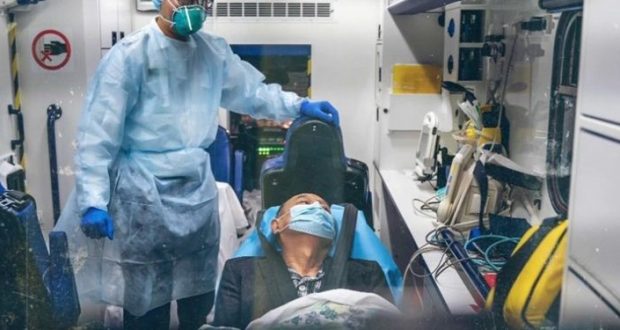Coronavirus and Nigeria – The Nation
It will be foolhardy for our governments not to guard against spread of the new virus
Shortly before the World Health Organisation (WHO) declared Coronavirus (2019nCoV) currently raging in China a “Public Health Event of International Concern” (PHEIC), WHO had warned 13 African countries, including Nigeria, to strengthen their preparedness in response to the outbreak in China of the virus.
The warning is to encourage early plans in sub-Saharan Africa to avoid importation of the pathogen to countries with weak health systems: “The risk of spreading the infection is very high in China…It is, however, expected that further international exportation of cases may appear in any country, especially in sub-Saharan Africa.”
It is commendable that the Federal Ministry of Health has been up and doing about the new virus even before WHO’s warning. For example, the Nigeria Centre for Disease Control (NCDC) had already issued advisory to the Nigerian public and health agencies at international airports to commence surveillance.
And, since the warning from WHO, other health and food-related agencies have made arrangements not to be taken by surprise.
For example, the government had acquired capacity to conduct quick test on overseas travellers entering Abuja, even as a Chinese supermarket in Abuja has been closed to avoid infection. However, such actions need to be extended to Lagos with the largest Chinese presence in the country.
The early warning to Nigeria by WHO is apt, given regular rise in movement of persons between Nigeria and China in recent years. For example, Wuhan, the epicenter of coronavirus, has the largest undergraduate university in China; two of China’s top 10 universities, and the third largest education and scientific centre in China, all of which have Nigerians as undergraduate or postgraduate students.
Wuhan also manufactures many products: electric goods, fresh and processed foods, and textiles that also attract Nigerian traders to Hubei Province while over one million Nigerians travel to Guangzhou in a year.
Similarly, the number of Chinese in Nigeria is growing by the day—some working on the railway and food processing factories in many parts of the country and others even carrying out small and medium businesses in Nigeria’s urban centres, including open markets.
Travels between the two countries through third countries such as UAE, Kenya, and Morocco are significant and will be more pronounced as Chinese return to Nigeria from their New Year festivities.
It is thus remarkable that Nigeria’s health institutions have already chosen to be awake to their duty on outbreak of a virus yet to have treatment or vaccine in a country with which Nigeria has regular contacts.
However, eternal vigilance is not only the price of liberty; it is also the price of public health in a globalised market.
The country may not have detected any trace of infection, but with the rise in the number of infections to 17,300 cases, and of deaths from coronavirus to 305, Nigeria ought to strengthen its preparedness.
While the government may have chosen not to bar travels to and from China, it has to be rigorous about screening of travellers into Nigeria from China and other countries during the period of health emergency.
For example, there is no reason why the Federal Ministry of Health’s acquisition of capacity to perform quick test to confirm coronavirus in Abuja did not start with Lagos as Africa’s busiest international airport and most populous city.
In addition, updated health advisory on coronavirus should be given to the public through all channels of mass communication, especially on radio in all languages at the local level where programmes can be readily customised.
All hospitals need to take advantage of the special number on surveillance created by the Federal Government—07032864444. Moreover, the Federal Government should designate quarantine centres in three cities with international flights: Lagos, Abuja, and Port Harcourt, while sustained enlightenment on the symptoms of coronavirus and what to do when cases are detected is provided in urban and rural areas at regular intervals.




